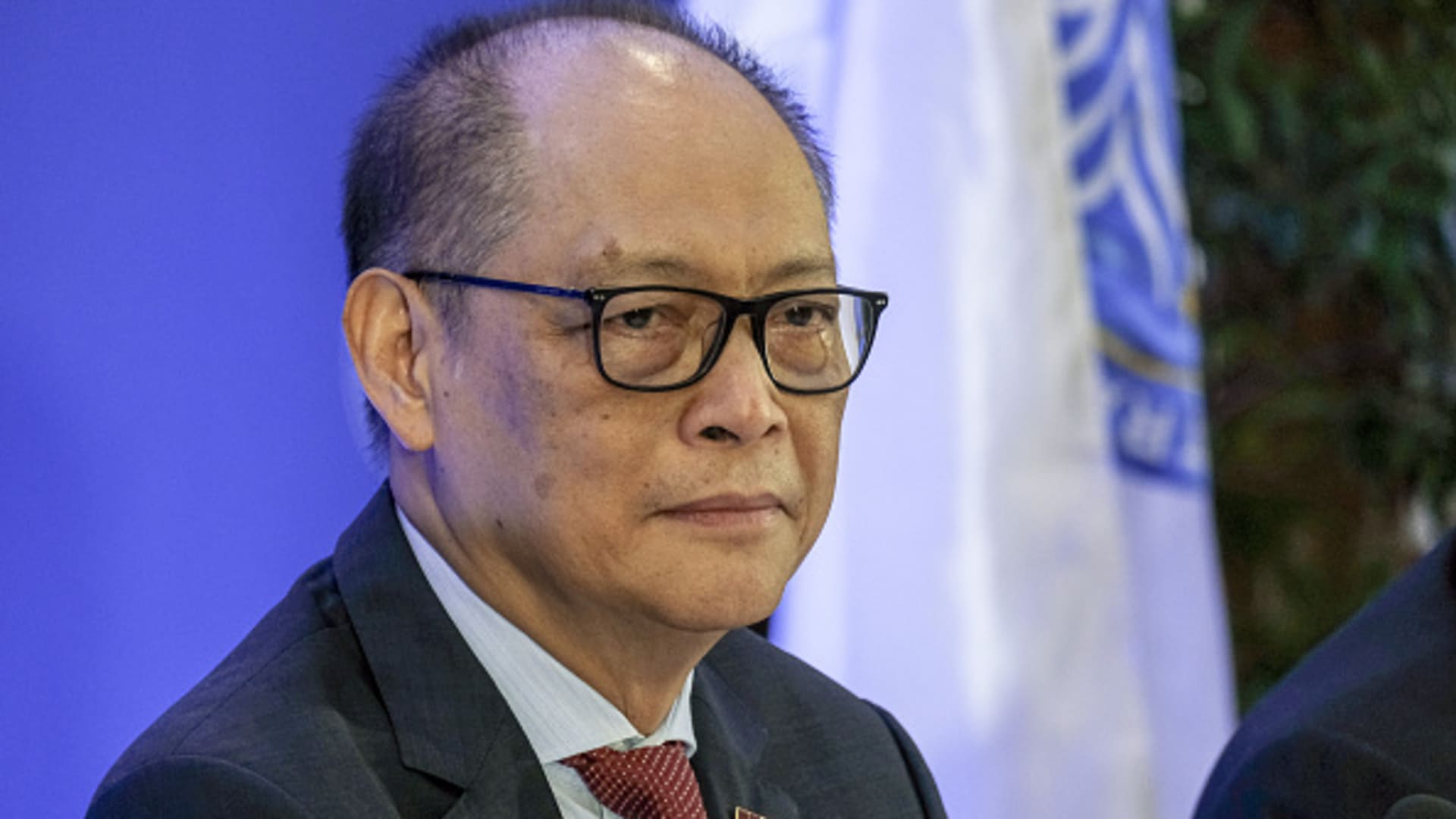
The Philippines’ incoming finance minister wants to get his county back on a growth path and tackle pressing economic issues such as its huge debt pile.
“As finance secretary I’ll have a slightly different role,” said Benjamin Diokno who is currently the central bank governor. “I’ll be heading the economic team. What we really want to do is get back to our growth trajectory before the crisis,” he told CNBC’s “Squawk Box Asia” on Wednesday.
“That’s our plan to keep the growth momentum going because I think it’ll solve a lot of our problems right now, which includes the ballooning deficit-to-GDP ratio and of course, the debt-to-GDP ratio,” said Diokno, who is governor of Bangko Sentral ng Pilipinas.
The Philippine government’s national debt reached 12.76 trillion Philippine pesos (about $232.11 billion) at the end of April, data released by the Treasury showed.
In February, the Department of Finance announced a fiscal consolidation plan for the next administration, which focused on the need to reduce the country’s pandemic-induced debt.
In 2019, before the pandemic started, the Philippines was one of the fastest growing economies in the world — but its services and remittances-led economy was badly hurt by Covid-19.
The government had to resort to emergency borrowing, to cover the massive cost of its Covid response and the corresponding drop in revenues resulting from mobility restrictions and economic slowdown.
“The debt-to-GDP ratio right now is around 63%. That’s really not scary, in fact, it’s fairly manageable,” Diokno noted. “As long as we grow at around 6-7% for the next six years that will easily go down back to below 60%.”
The governor said the new administration has no intention of implementing tax hikes, at least not within the first year. He is fine with the tax reform packages left by the previous administration President Rodrigo Duterte.
“The tax reform program we pushed during [the] Duterte administration has two remaining sections. These last two measures are supposed to be revenue neutral,” he said.
“But they will significantly simplify the tax system. So we will continue to push them. And I expect this to be approved this year and then we will implement it next year.”




